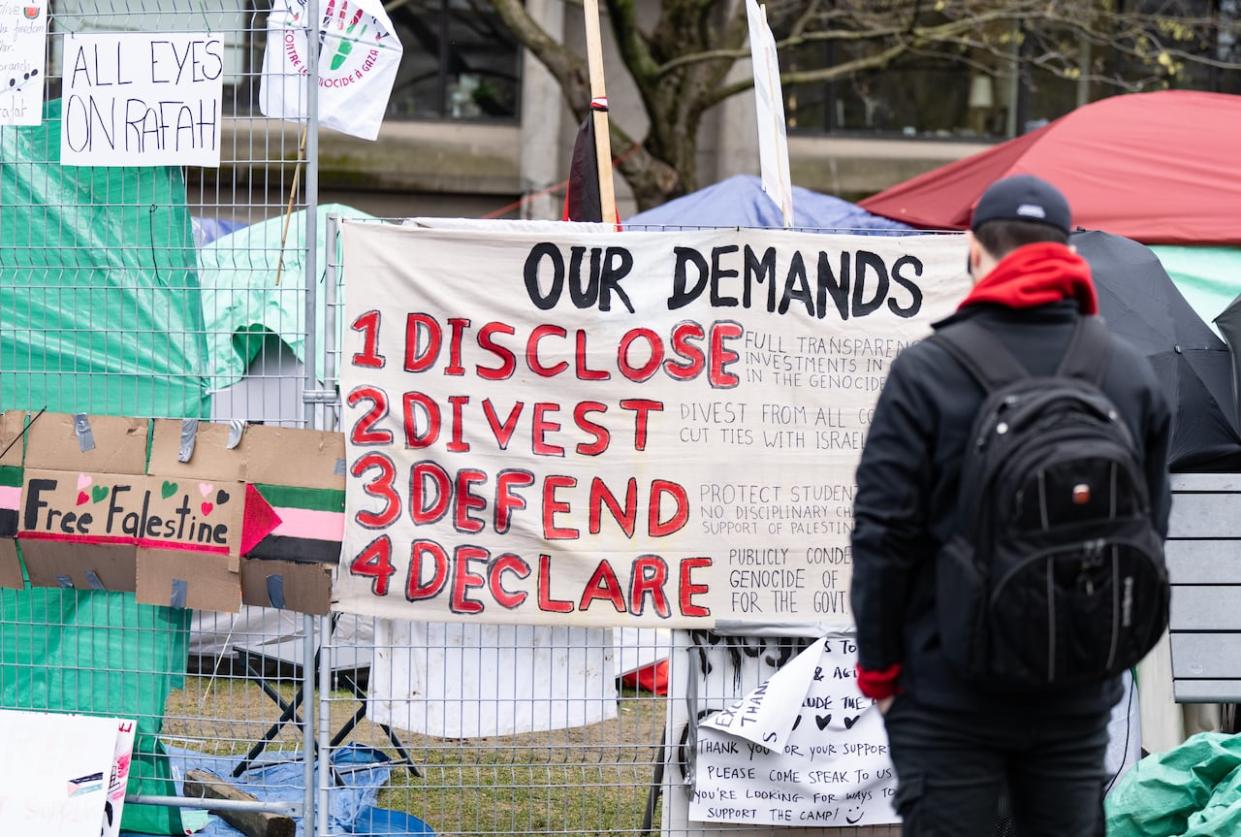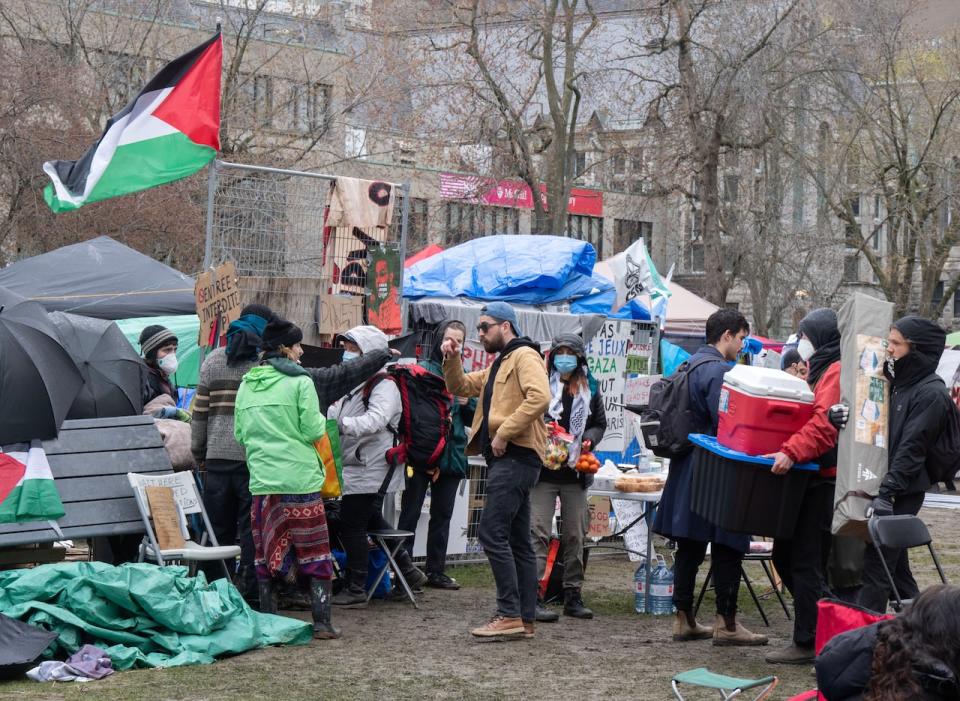Judge expected to rule on injunction request to force protesters off McGill encampment site

As the pro-Palestinian encampment protest in front of McGill University in Montreal enters its fifth day, a Quebec Superior Court judge is expected to rule on a request to forbid people from gathering near the university's buildings.
Protesters, who began gathering last Saturday, have said they are determined to stay put until the university divests from companies with business interests in Israel.
At the Montreal courthouse on Tuesday, Judge Chantal Massé heard arguments from the legal team representing two students who are hoping to see a provisional injunction against the encampment.
The plaintiffs called for five pro-Palestinian groups to be prevented from taking protest actions within 100 metres of McGill property.
The plaintiffs allege in their court filing that the groups have "created an environment of hate on campus," which they say has made them uncomfortable to attend classes and exams. They also allege they have faced harassment and intimidation from the defendants.
None of the allegations have been proven in court.
In an interview with Radio-Canada on Wednesday, Fabrice Labeau, McGill's vice-provost reiterated the university's position that the encampment is untenable. He pointed to the encampment's size, reports the university says it has received about antisemitic behaviour during the protest and the protesters' unwillingness to agree on a timeline to disperse.
He also said there is already a committee in place for students who wish to voice their displeasure about the university's investments.
"There is a process and we've been reminding everybody of this process. Unfortunately, the students who are demanding divestment have chosen not to follow that path which is the actual path to make things change," Labeau said.
On Tuesday, McGill shared a video with CBC News that it said included antisemitic remarks. The video lists McGill University as its location and includes protesters chanting "all the Zionists are racist, all the Zionists are the terrorists," as well as "go back to Europe."
The video provided to CBC News contains the text "20 Jihadists against one Jewish Israeli student being told to go back to Europe."
CBC News has not independently verified the video's source, nor if the people in the video are part of the encampment. The video is one of 27 included in the injunction request on behalf of the two McGill students.
McGill says the video is the subject of an internal investigation.

Pro-Palestinian activists bring in supplies at their encampment on the McGill University campus Tuesday, April 30, 2024 in Montreal. (Ryan Remiorz/The Canadian Press)
The encampment at McGill is one of dozens at universities across North America. On Tuesday night, NYPD officers stormed a Columbia University building that had been occupied by protesters, making dozens of arrests.
On Tuesday, McGill also announced it had asked the Service de police de la Ville de Montréal (SPVM) to provide assistance because university officials "failed to reach a resolution" with protesters.
On several occasions since the encampment began, the SPVM has said the protest was peaceful.
On Wednesday morning, the police service told Radio-Canada that no crimes were being committed at the encampment and that it was waiting for the judge's ruling on the injunction request before determining next steps.
In the court filing for the injunction request, McGill is listed as an interested party. Lawyers for the university told the judge it was neither for or against the injunction.
"We're very clear that we want the encampment to be dismantled," Labeau told Radio-Canada on Wednesday. "At the same time, there are some protests that happen on our campuses that we'll continue to allow and tolerate as long as they remain within the boundaries of the law and the boundaries of our policies."

